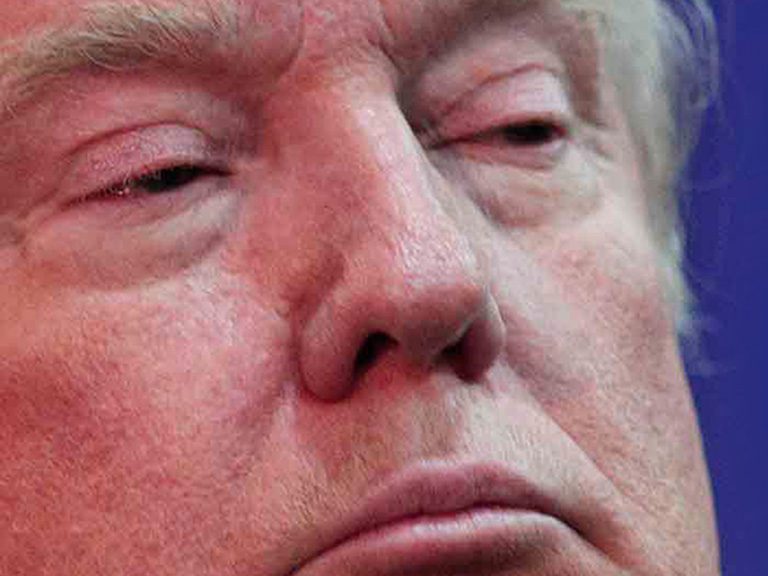Donald Trump foments hope in the exercise of his emotional freedom.
Dear America, if I read one more article about the Danger of Political Emotions in an election season (I mean you, Paul Krugman), I might take my own life. If I do that and fail, will the state bring me up on charges the way it’s considering to do for Chelsea Manning, whose recent suicide attempt might be prosecuted? The prospect of the state’s intensification of punishment in response to the reported suicide attempt has been widely reported.
If x had an ounce of decency, x would deliver justice. Such bad math, so emotional. But politics is always emotional. It is a scene where structural antagonisms -- genuinely conflicting interests -- are described in rhetoric that intensifies fantasy.
Here is the thesis of this piece, which is about the contemporary United States. People would like to feel free. They would like the world to have a generous cushion for all their aggression and inclination. They would like there to be a general plane of okayness governing social relations. It is hard for some to see that the “generous cushion for aggression” might conflict with the “general plane of okayness.”
When I listen to Donald Trump, I think he’s not wrong about some things, especially the awful neoliberal-Clintonian trade deals and bank deregulation that sold out the working class in the US because of a muddled idea that any wealth at all is a general social benefit. But Donald Trump is our current best exhibit of two other pretty solid truths about politics, thinking, and feeling.
One is: A Good Account of a Problem Predicts Absolutely Nothing About the Value of a Solution.
I am a professor. I have read three decades of essays that set up problems beautifully and then fall apart in the what is to be done section. Sanders and Trump inflamed their audiences with searing critiques of Capitalism’s unfairness. Then what? Then Trump’s response to what he has genuinely seen is, analytically speaking, word salad. Trump is sound and fury and garble. Yet -- and this is key -- the noise in his message increases the apparent value of what’s clear about it. The ways he’s right seem more powerful, somehow, in relief against the ways he’s blabbing. Plus, apart from rebooting capitalism, nobody in mainstream politics is that visionary about what to do, because everyone has to be patriotic toward capitalism, since that’s come to stand for freedom.
Two: the second thing about Trump is that Trump is free.
You watch him calculating, yet not seeming to care about the consequences of what he says, and you listen to his supporters enjoying the feel of his freedom. See the brilliant interviews on Samantha Bee’s Full Frontal, where RNC conventioneers say, over and over: We’re for Trump because he’s not politically correct, PC has harmed America, and you think, people feel so unfree.
Let’s sit with that.
For some people in the liberal tradition, the equal distribution of suffering has come to look like democracy, which is why they are so excited by the phrase “the 1%.” The rich are not suffering! It’s not fair! Everyone should be equally vulnerable!
But Trump’s people don’t use suffering as a metric of virtue. They want fairness of a sort, but mainly they seek freedom from shame. Civil rights and feminism aren’t just about the law after all, they are about manners, and emotions too: those “interest groups” get right in there and reject what feels like people’s spontaneous, ingrained responses. People get shamed, or lose their jobs, for example, when they’re just having a little fun making fun. Anti-PC means “I feel unfree.”
The Trump Emotion Machine is delivering feeling ok, acting free. Being ok with one’s internal noise, and saying it, and demanding that it matter. Internal Noise Matters. The reason white people can be so reactively literal-minded about Black Lives Matter, reeling off the other “lives” that matter too, isn’t only racism. It’s that in capitalism, in liberal society, in many personal relationships, they feel used like tools, or ignored, or made to feel small, like gnats. They feel that they don’t matter, and they’re not wrong.
They’re saying, I want to matter. They’re saying I want my friends, my group, to matter. Who matters? Why should group x matter more, or first, or get more attention? It’s hard for the formerly optimistic and unmarked whites to feel right about other people mattering before they do, because they didn’t know that their freedom was bought on the backs of other people’s exploitation and exile from protection by the law.
To summarize: where the mainstream is concerned, all politics is emotional because all politics is sentimental, attaching people to dreams of a better good life through the law’s good heart. The nation was supposed to deliver justice but that’s not working out too well, so we switched to “the nation saves hope, without hope there’s no hope, etc.” Donald Trump foments hope in the exercise of his emotional freedom. The Democratic party fomented hope at its convention by borrowing from the maternalist playbook of the 19th century (my mother! my daughter! our children!) and the liberation theology of universal love with a policy obligation that we identify with a defanged version of Dr. Martin Luther King. Donald Trump loves too, you know: he says it all the time. I think he means it, if love means mutual idealization. The Democrats under Clinton have hope and love: not fairness. The reboot of the New Deal lost, this time, to Google Democracy: try to do no evil, and protect the profits.
Anyway, one party’s message is radical and incoherent, and the other’s, the Democrat’s, is moderate-conservative and traditional. All the messages are emotional.
